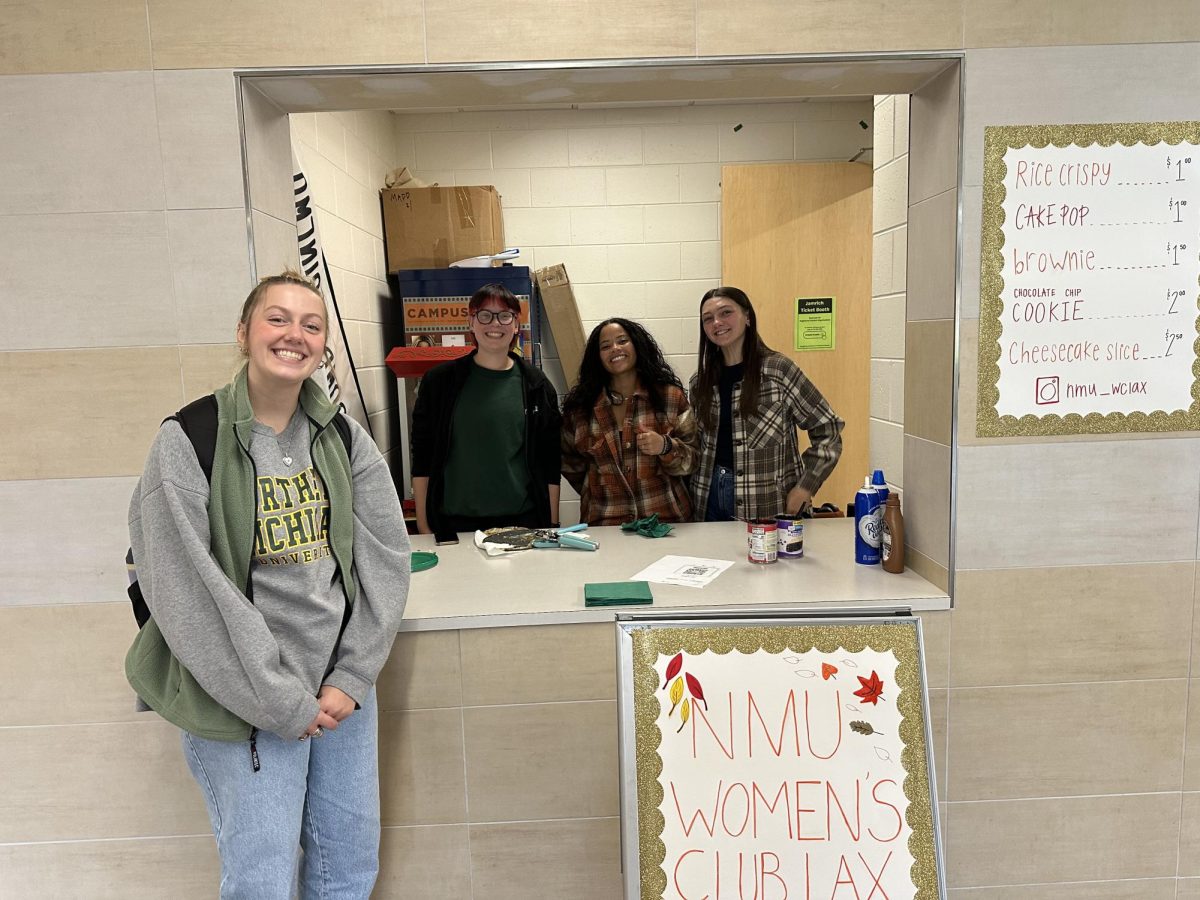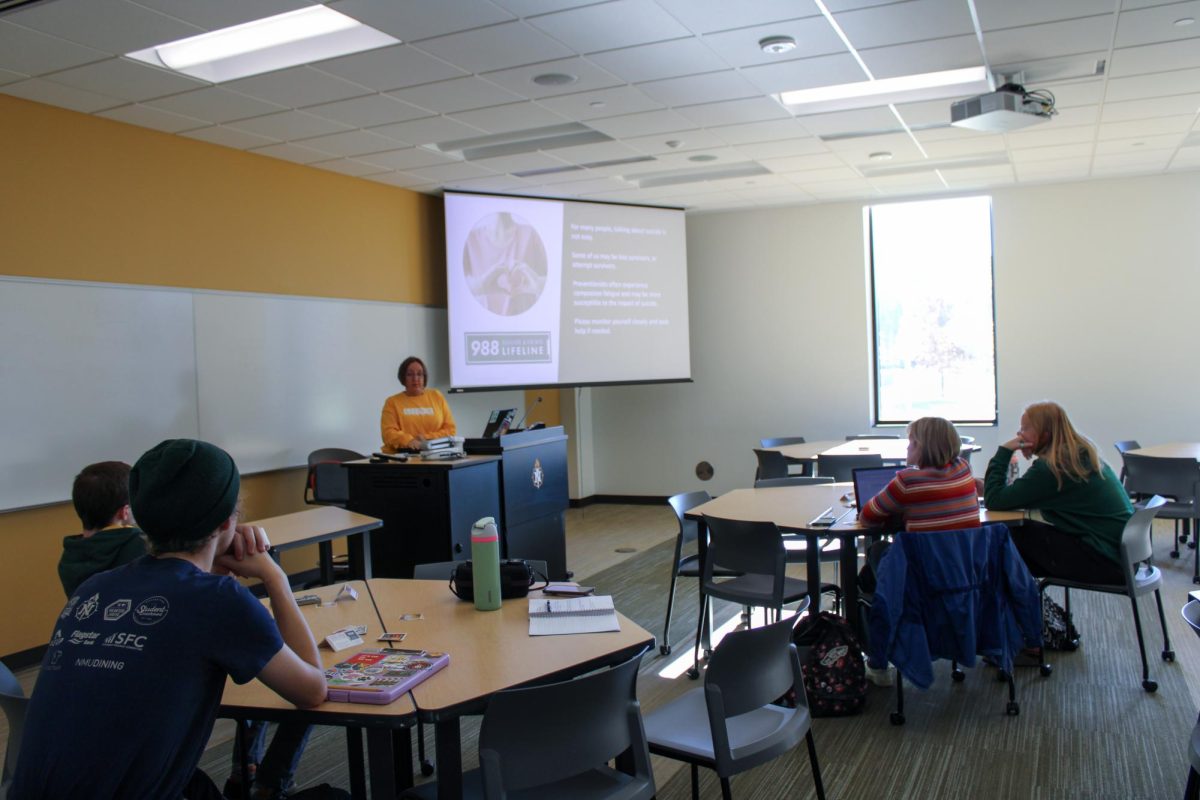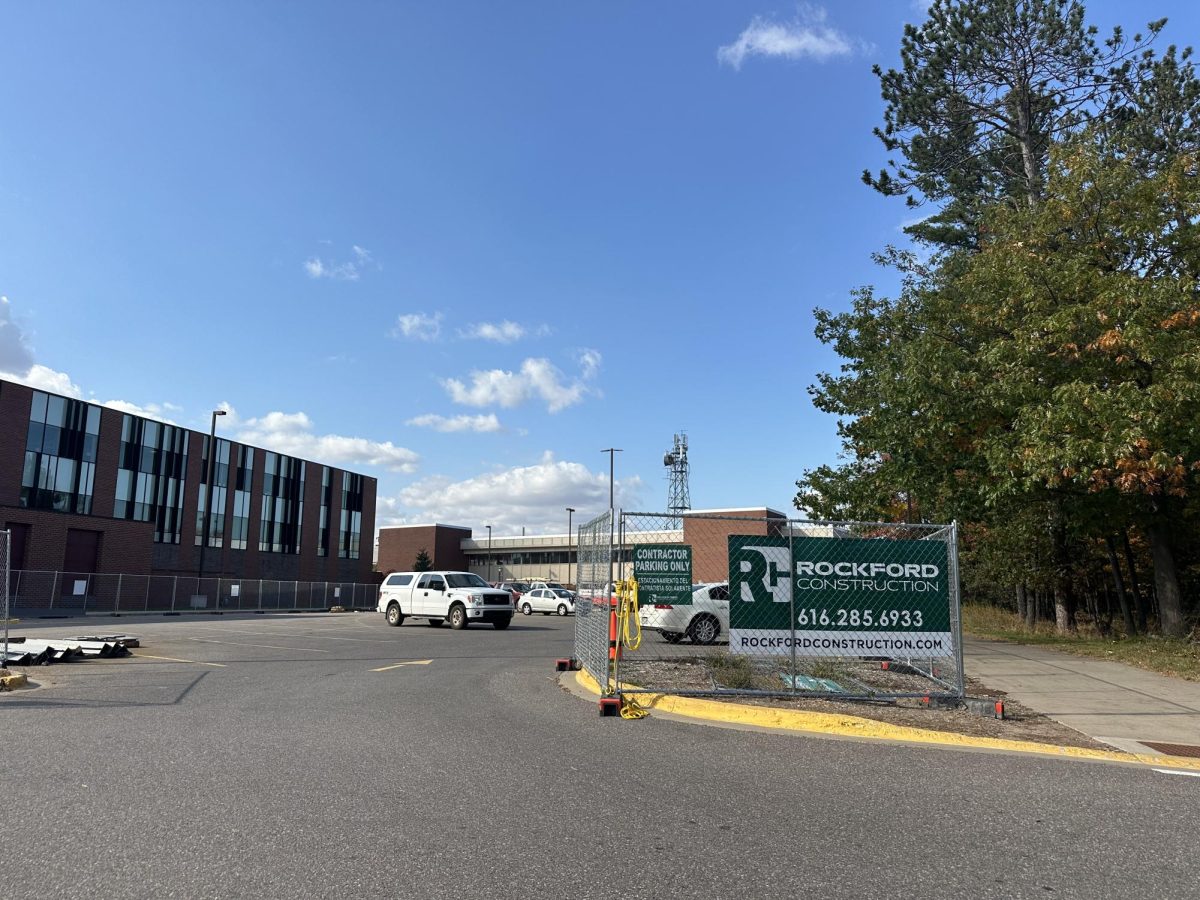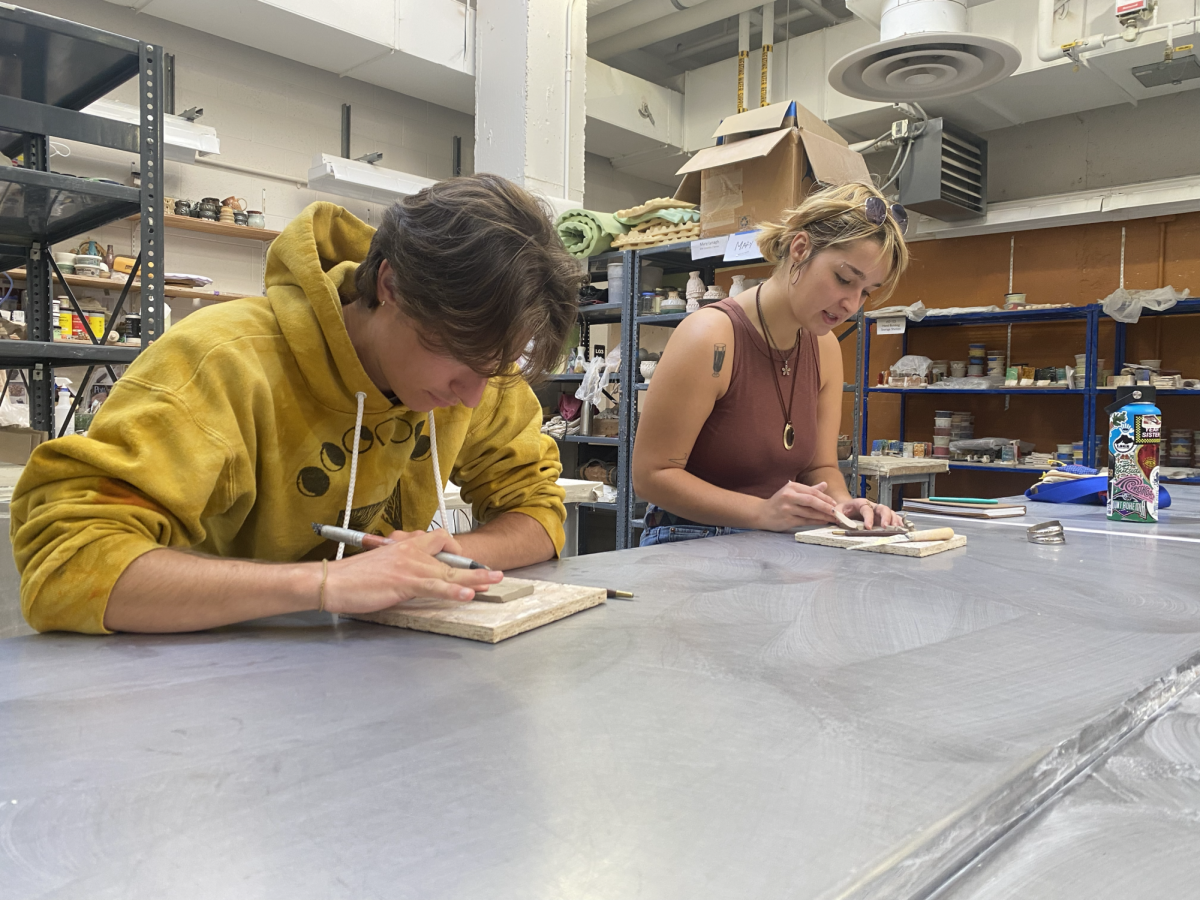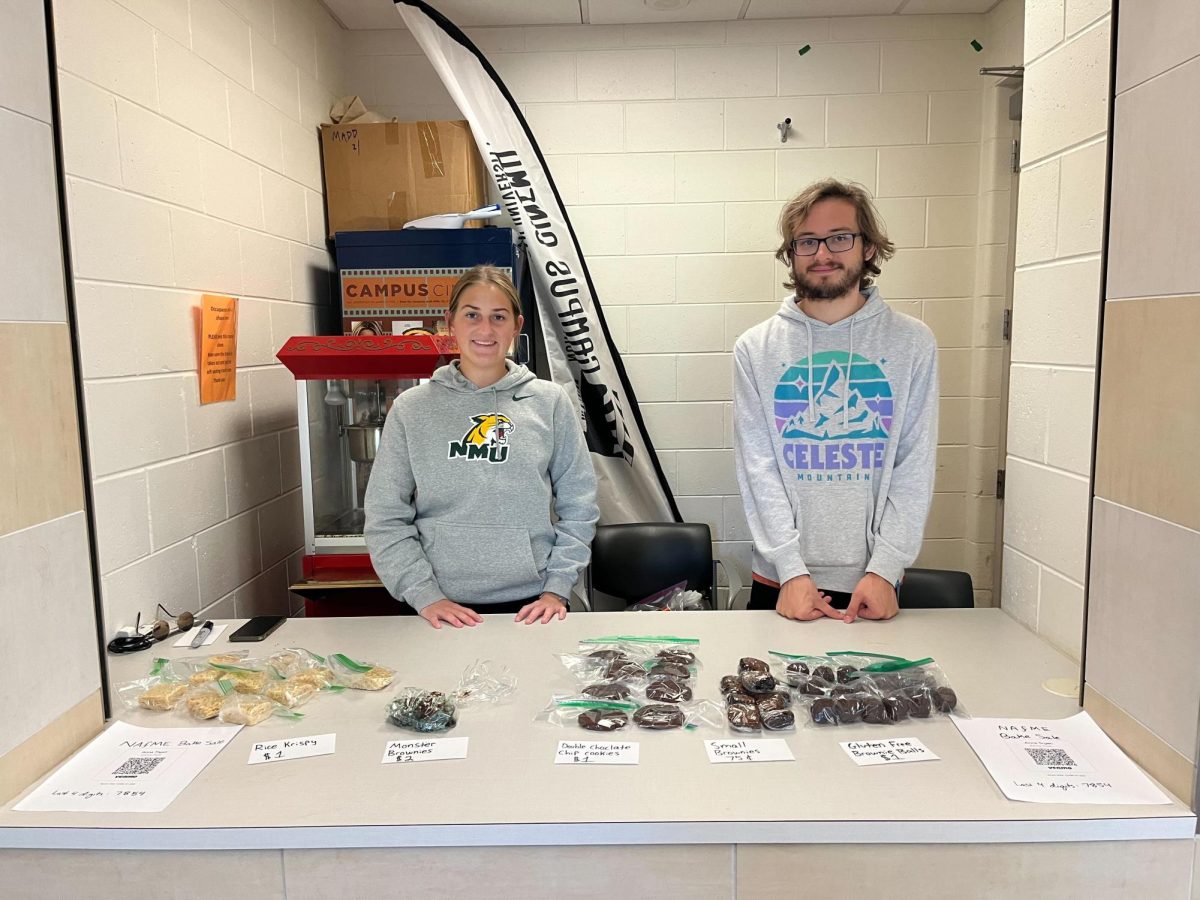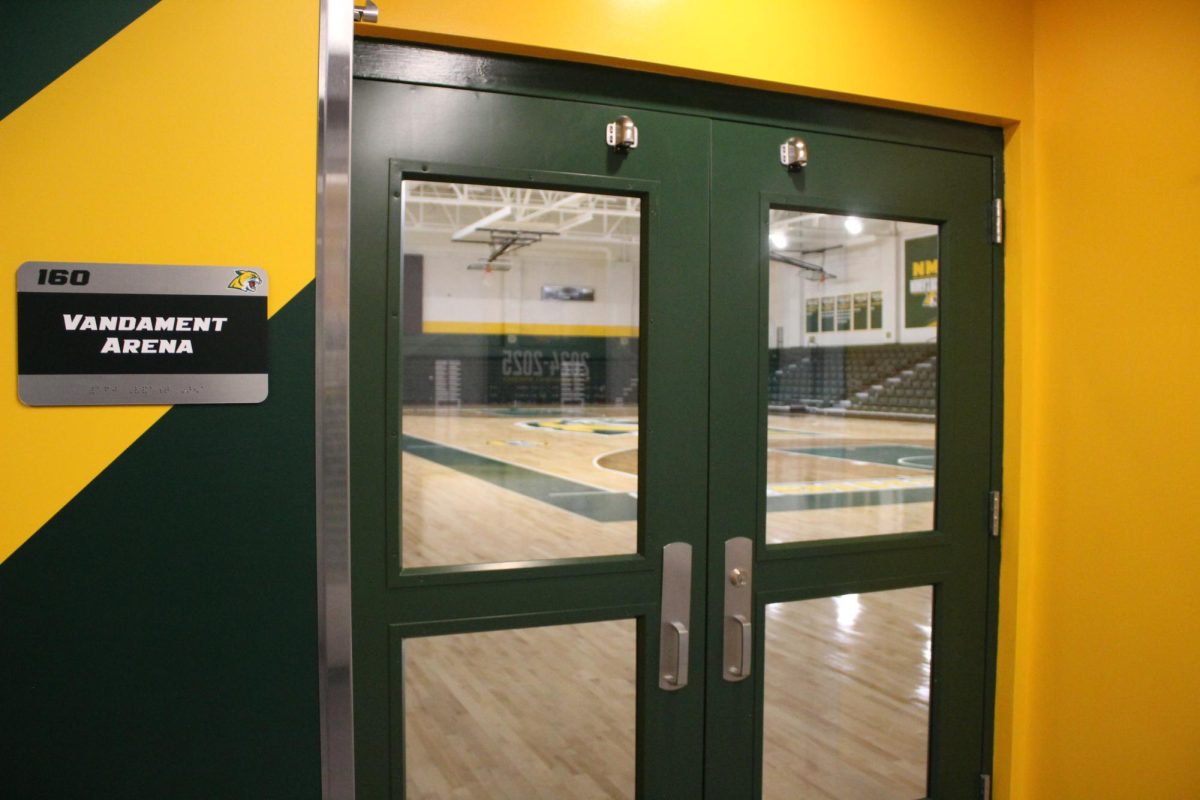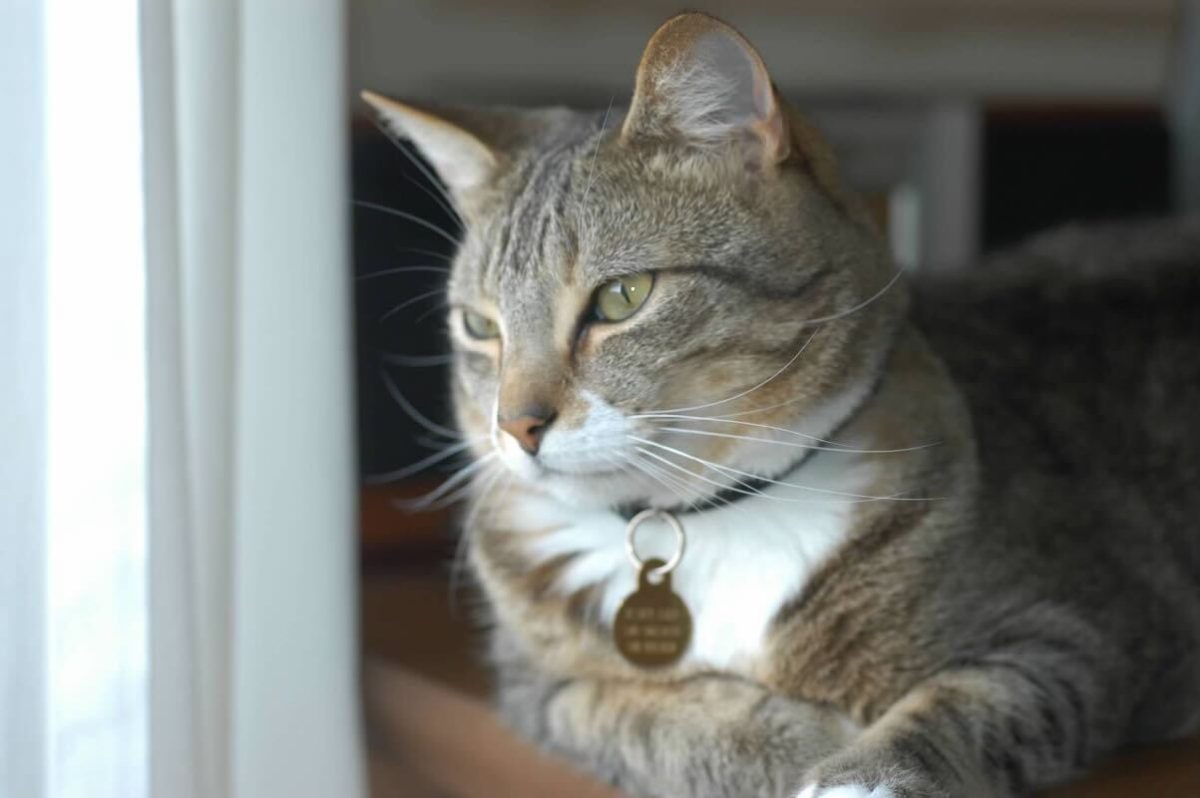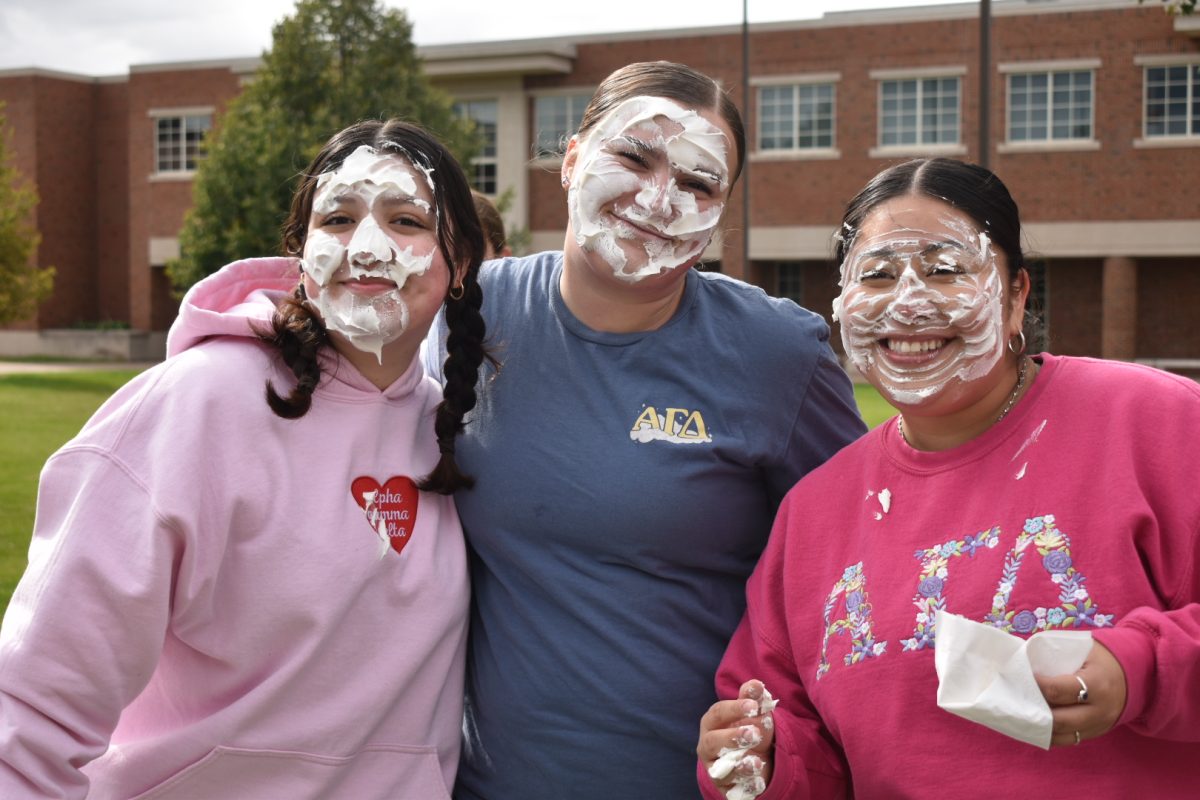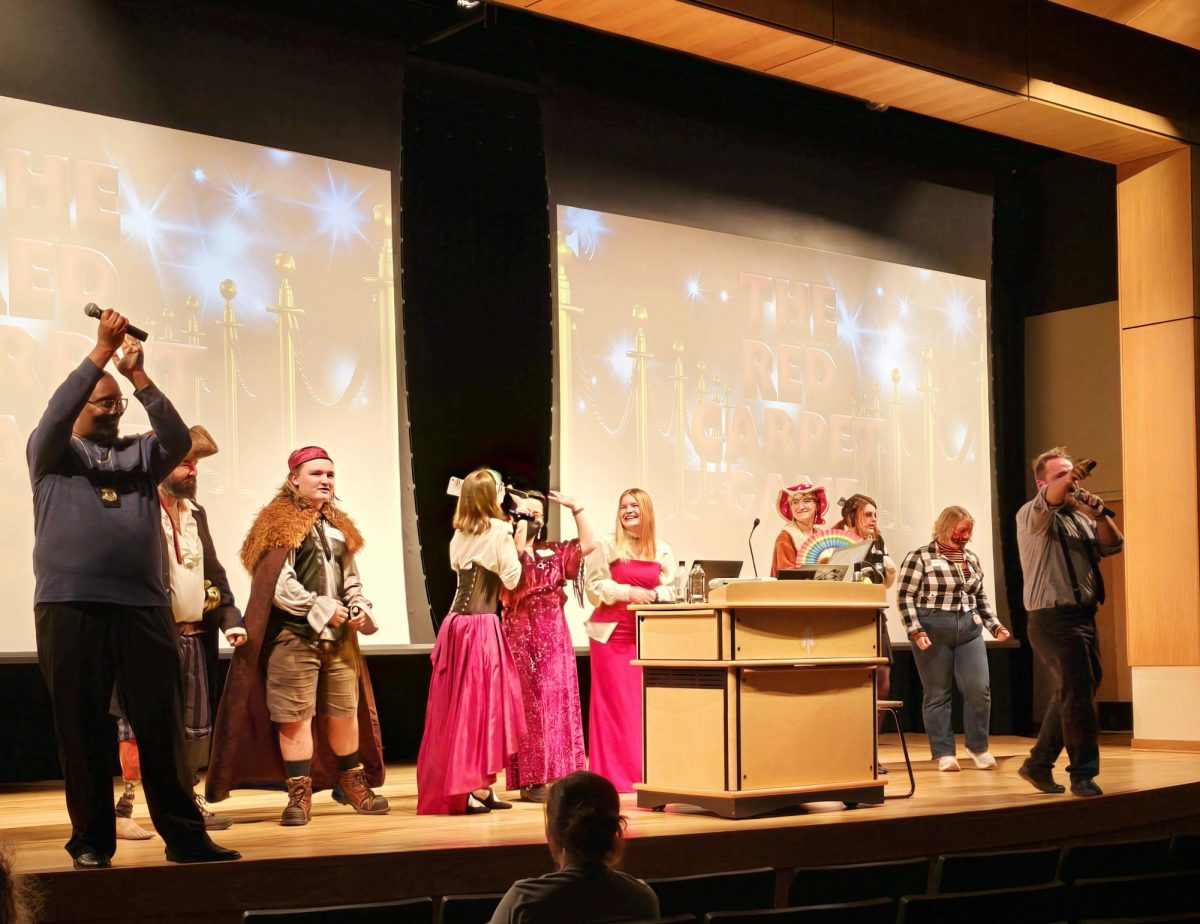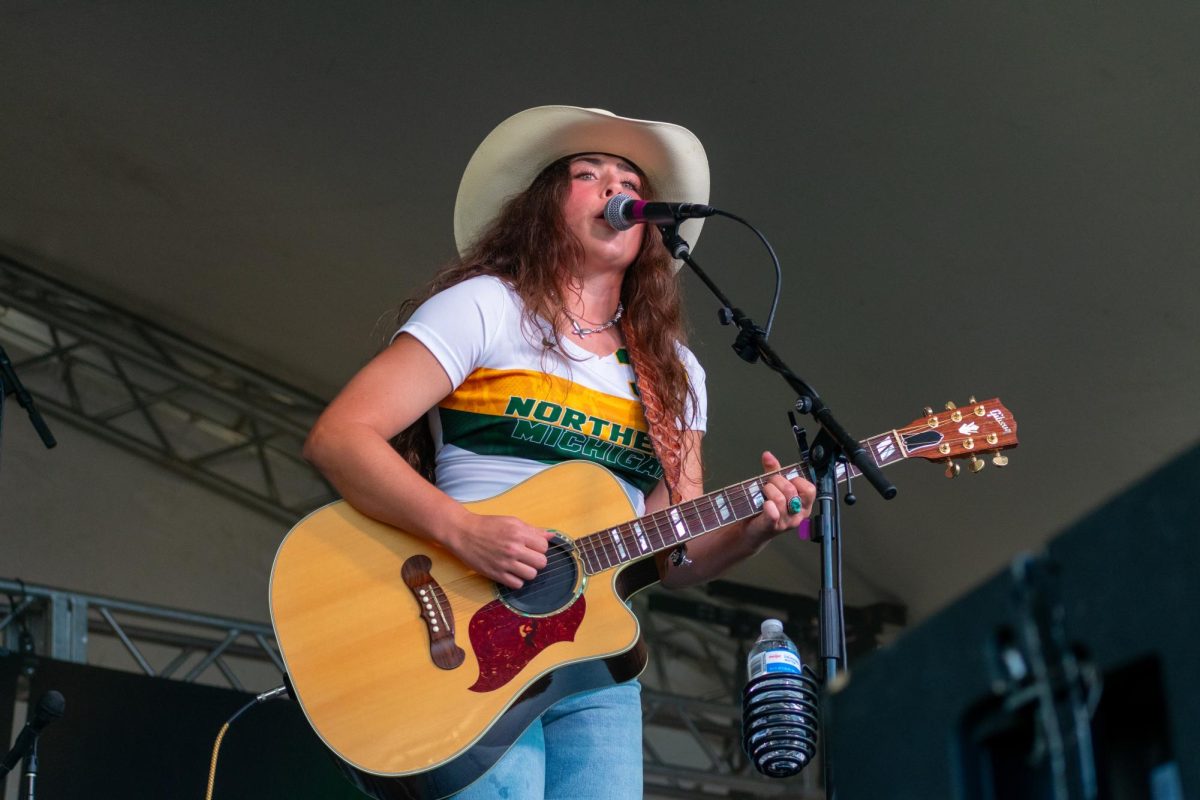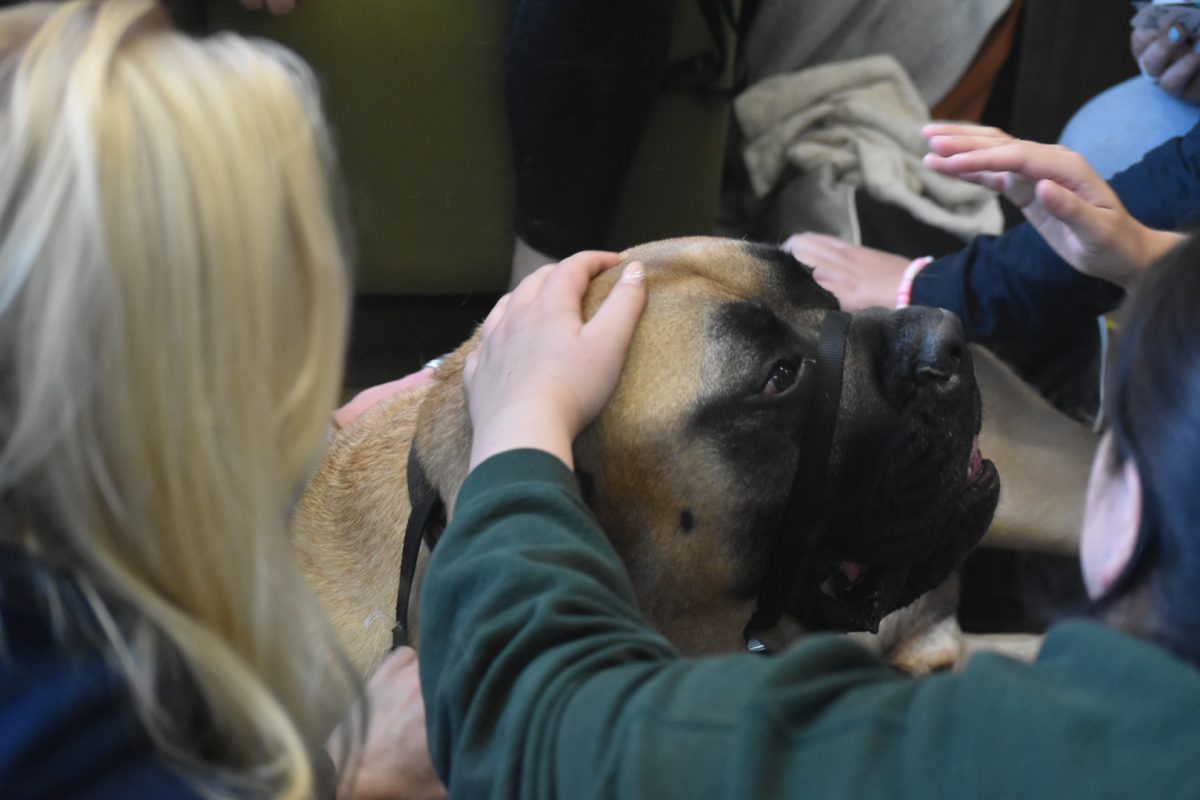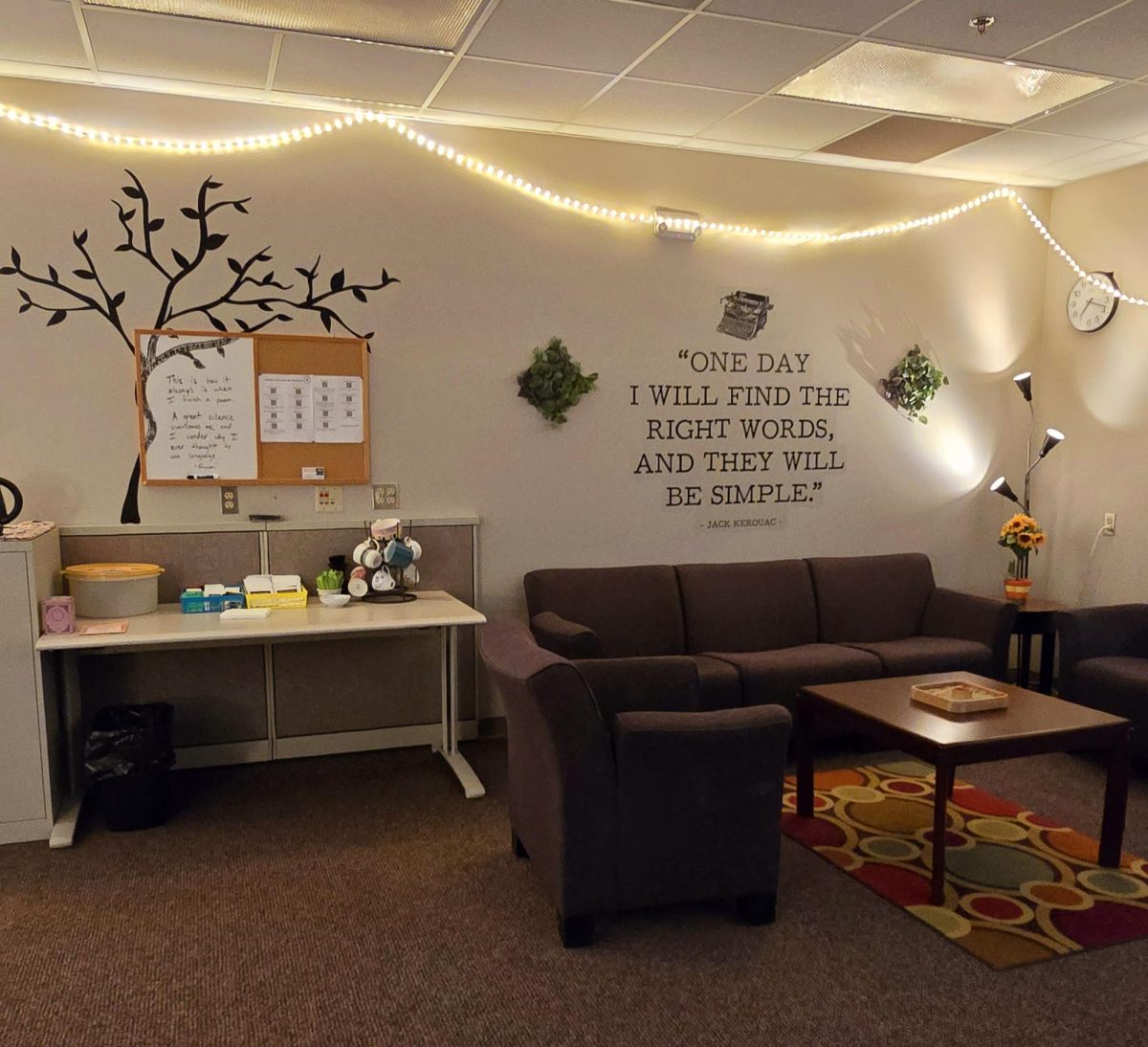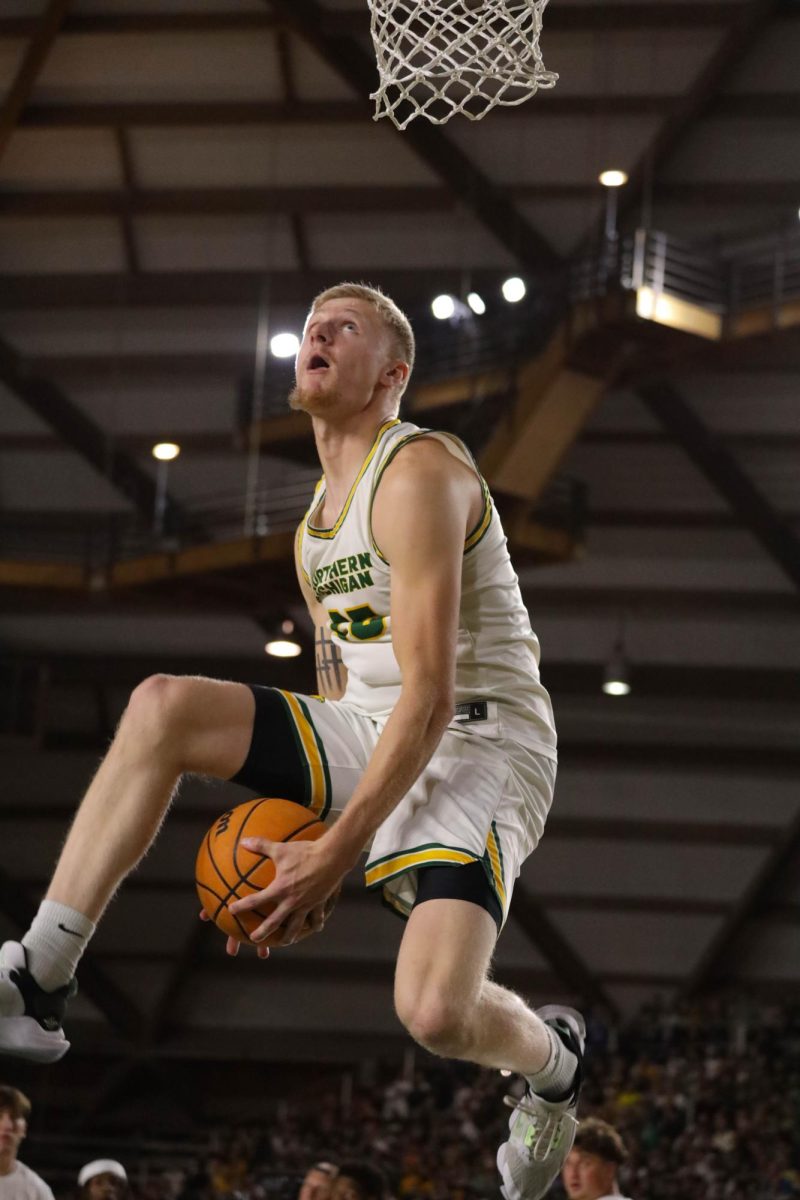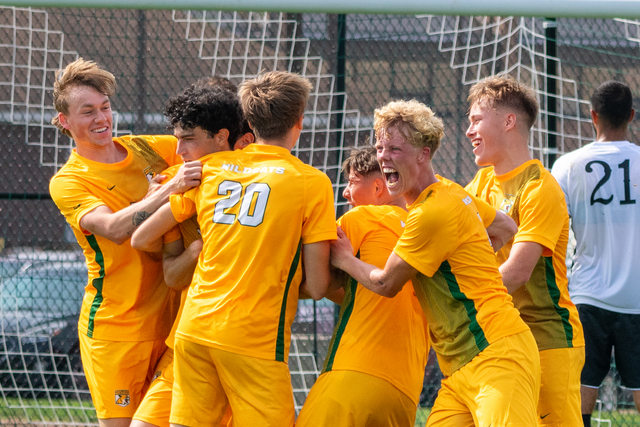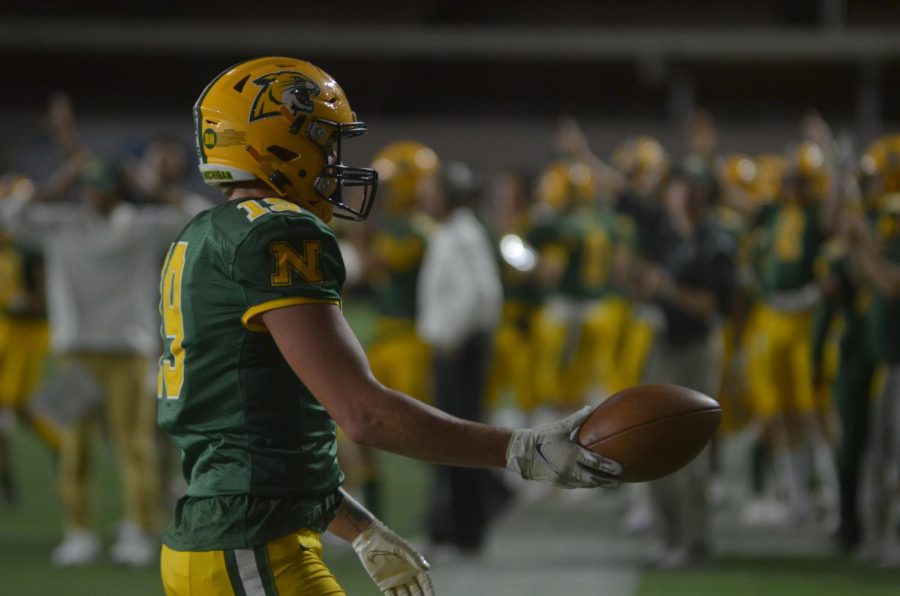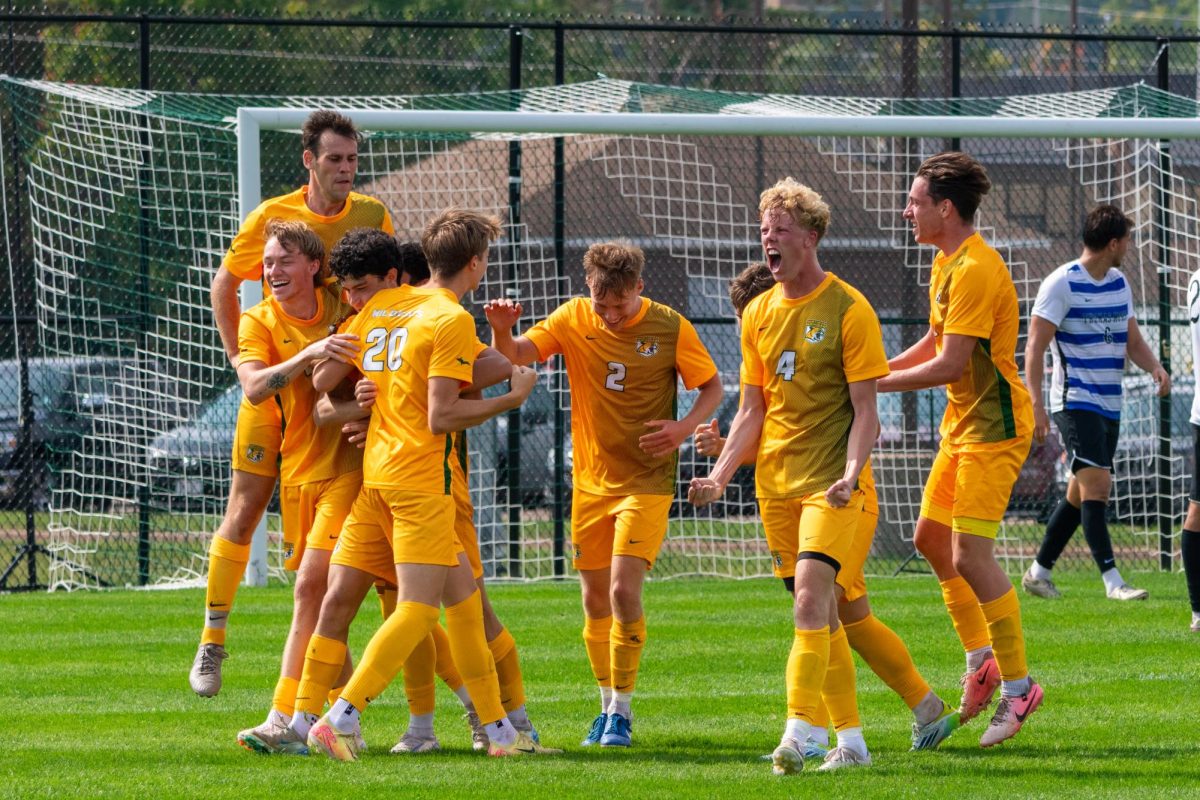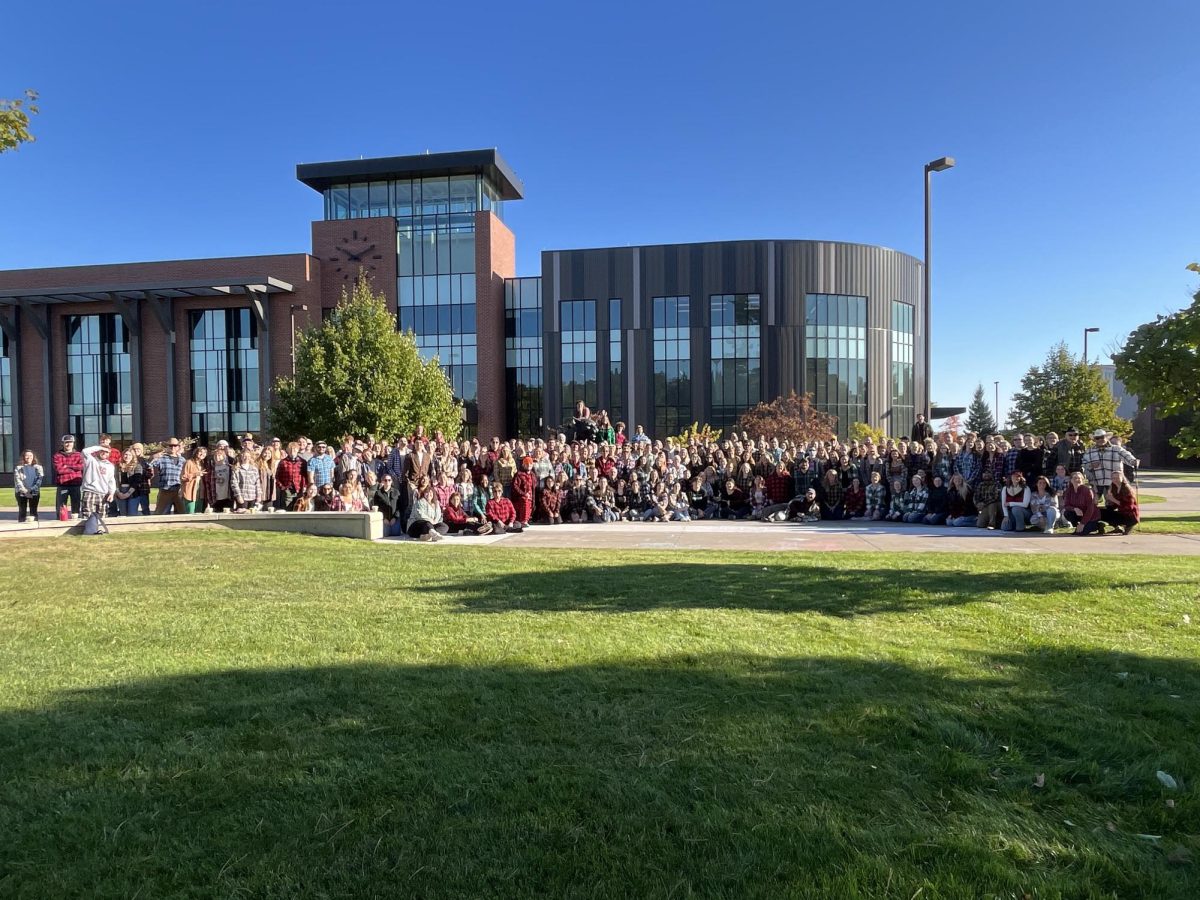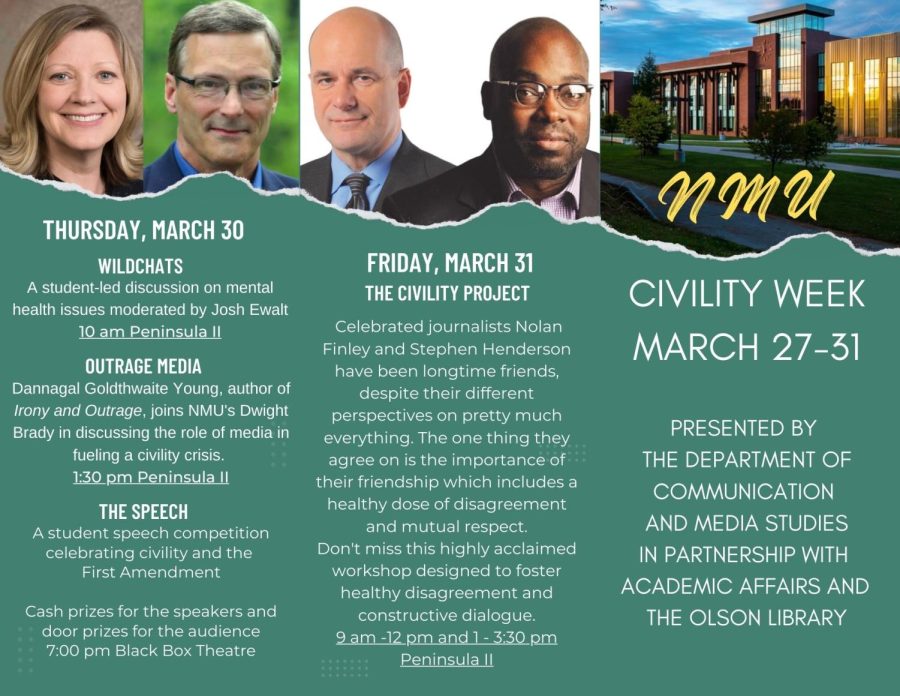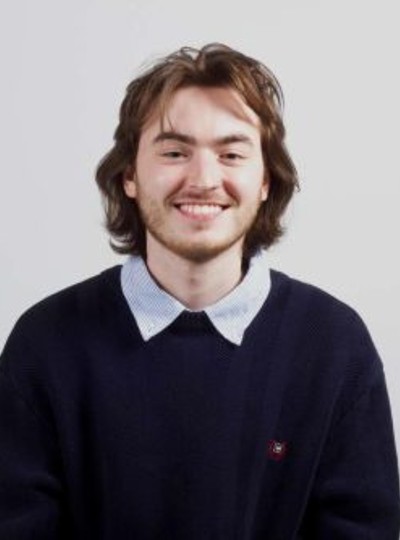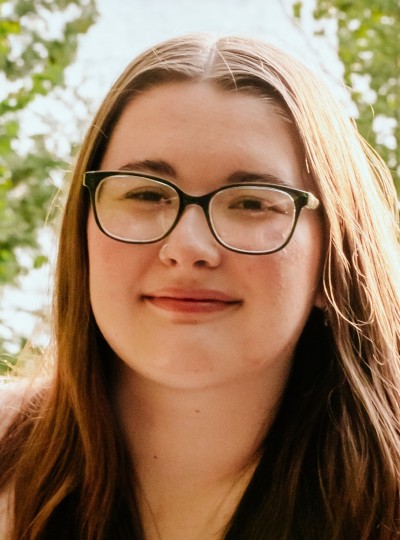CAMS presents first NMU Civility Week
Promotes mindful, constructive civil disagreement, discussion
March 31, 2023
The first NMU Civility Week was presented by the communication and media studies department (CAMS) in partnership with Academic Affairs and the Lydia M. Olson Library.
Civility Week began on Monday, March 27, with a Cup of Civility, where faculty and staff served coffee and snacks for students to learn more about the week. This was followed by sessions on Tuesday, March 28, regarding civility in academia with two sessions titled academic freedom and civility, and civility in the classroom. On Wednesday, March 29, the conference kicked off with State Senator Ed McBroom, followed by a presentation titled “The Great Divide.” In the evening there was a screening of “Trust Me.”
With these events the organizers wanted a chance to take leadership as a university, said Dwight Brady, professor of CAMS.
“Within the last few years, our nation has become more and more divided, and this is an opportunity for us to say ‘maybe there’s a better way,’” Brady said.
Brady, who teaches mass communication law, which covers the freedom of speech outlined in the first amendment, has been organizing Civility Week over the last five months.
“One of the reasons I jumped on board is because you can see what’s happening within the country and we’re a microcosm of that here,” Brady said. “There’s been some ripples of incivility here at Northern as well as there would be in any community.”
On Monday, an English professor at Wayne State University was suspended for a post that “exceeds the bounds of reasonable or protected speech.”
“We’re not above that and we need to be mindful of it here within the university,” Brady said.
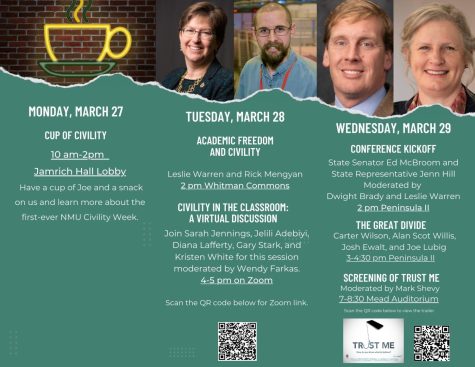
On Thursday, March 30, Wild Chats, a student-led discussion on mental health, was held in the Northern Center and moderated by Joshua Ewalt, an assistant professor in the CAMS department who teaches speech and communication classes.
“He has now coached students in his class on how to moderate these types of discussions, using a similar format to a national issues forum,” Brady said.
On Friday, March 31, The Civility Project, a workshop designed to foster healthy disagreement and constructive dialogue, was held which featured two journalists with opposing views.
“It’s a chance to model what civility should look like. We have some really great speakers coming in that certainly are capable of doing that,” Brady said. “That’s part of the equation too, that students see adults modeling it.”
Brady and other organizers of Civility Week hope participants can learn how to truly listen after attending events throughout the week.
“I think the main thing that I would like to see come out of this certainly is the ability to truly listen and to come away from this with an appreciation for a viewpoint that is not our own,” Brady said.
With the headlining names, faculty and administration presenters and moderators, the conference was high quality and cost-effective to put on, Brady said.
“The main thing here is that it is meaningful, not necessarily that it’s a big production, but that this has some meaning,” Brady said.

